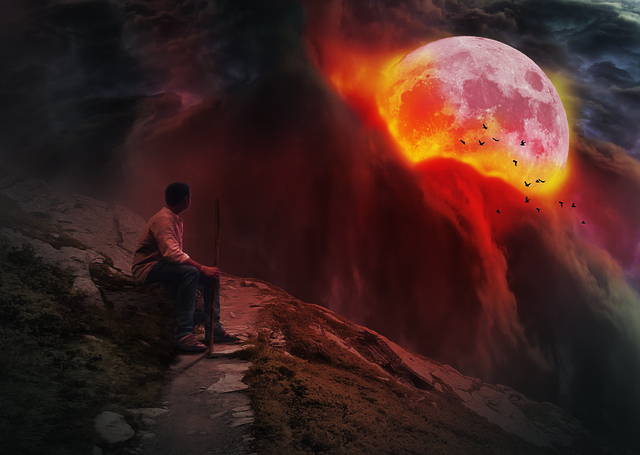Post-apocalyptic literature delves into humanity's endurance and societal transformation after catastrophic events, with notable works like "The Road" by Cormac McCarthy and "Oryx and Crake" by Margaret Atwood exemplifying the genre. These stories explore survival instincts, ethical dilemmas of scientific overreach, and the search for meaning in a world reshaped by destruction. The genre not only captivates with its depictions of survival but also prompts readers to reflect on civilization's fragility, human ingenuity, and societal adaptation. It serves as a canvas for examining human resilience, interpersonal dynamics, and the transformation of social structures in response to apocalyptic scenarios. These narratives engage with contemporary sociopolitical issues, long-term implications of our decisions, and the profound psychological impact of such events. The enduring appeal of post-apocalyptic literature lies in its ability to provoke thought on human coping mechanisms, societal recovery, and the indomitable spirit that emerges from the ashes of civilization. It offers a mirror to our current realities and a lens for imagining future challenges, reflecting the depth of our potential to endure, adapt, and rebuild under extreme conditions. These stories are significant contributions to understanding human nature in the face of an apocalypse, solidifying their place within the rich tapestry of post-apocalyptic literature.
Navigating the literary landscape of post-apocalyptic fiction offers a compelling exploration of human resilience and societal collapse. This article delves into the genre’s most impactful novels, which chart the course of humanity in the aftermath of cataclysmic events. From the unsettling worlds depicted in top post-apocalyptic novels to the survival strategies and sociopolitical commentary they present, these narratives challenge readers to contemplate the fragility of civilization. Additionally, we’ll examine the psychological depths explored within this fiction, revealing how authors capture emotional responses to apocalypse scenarios. For aficionados of the genre, we also provide an in-depth look at some of the best post-apocalyptic series that delve into longform narratives of survival and human endurance. Join us as we traverse this riveting genre and uncover its most compelling contributions to literature and thought.
- Unsettling Worlds: The Top Post-Apocalyptic Novels That Paint a Stark Picture of Societal Collapse
- Survival Strategies and Sociopolitical Commentary in Post-Apocalyptic Literature
- Psychological Depth and Human Resilience: A Look at Post-Apocalypse Fiction's Emotional Landscapes
- The Best Post-Apocalyptic Series: Exploring Longform Narratives of Humanity's Struggle for Survival
Unsettling Worlds: The Top Post-Apocalyptic Novels That Paint a Stark Picture of Societal Collapse
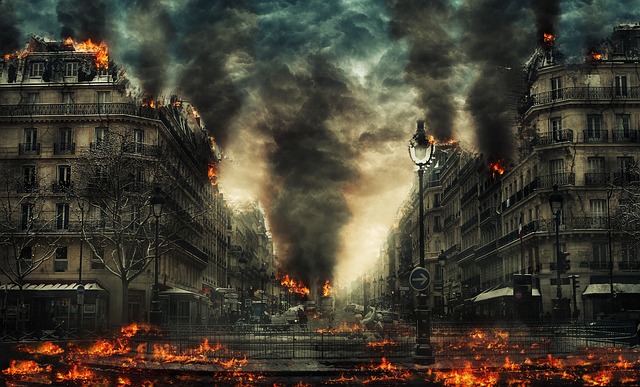
The genre of post-apocalyptic literature has long captivated readers with its dark visions of societal collapse and the indomitable human spirit’s resilience in the face of an unraveling world. These narratives, often set in unsettling worlds where familiar landscapes are irrevocably altered by cataclysmic events, explore themes of survival, the struggle for power, and the remnants of humanity’s moral compass. Among the top post-apocalyptic novels, “The Road” by Cormac McCarthy presents a harrowing journey through a charred America, where a father and son navigate a perilous environment fraught with cannibals and the aftermath of an unspecified catastrophe. This stark portrayal offers a powerful commentary on human connection and the enduring will to survive against overwhelming odds. Similarly, “Oryx and Crake” by Margaret Atwood takes readers into a future where bio-engineered plagues have decimated the global population, leaving behind a few survivors and the remnants of a once vibrant society. Through its richly detailed world and complex characters, the novel delves into ethical dilemmas, the consequences of scientific advancement, and the fragility of civilization. These stories not only entertain but also provoke thought about our own world’s vulnerabilities and the resilience required to endure in the face of unprecedented challenges. For those drawn to the apocalypse’s bleak yet compelling scenarios, these novels stand as testaments to human ingenuity, survival instincts, and the unyielding quest for meaning in a world that has ended as we know it.
Survival Strategies and Sociopolitical Commentary in Post-Apocalyptic Literature
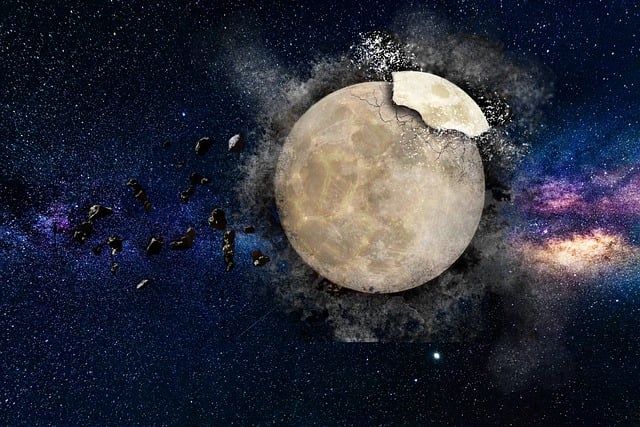
Post-apocalyptic literature often delves into the intricate dynamics of human survival and sociopolitical commentary amidst a desolate landscape. The genre, set in a world ravaged by an apocalypse, provides a fertile ground to explore how individuals and communities adapt and evolve in response to catastrophic events. Key themes frequently include resource management, interpersonal relationships, and the restructuring of societal norms. For instance, “The Road” by Cormac McCarthy portrays a father and son’s journey through a charred America, highlighting survival strategies such as securing food, water, and shelter in an environment where basic necessities are scarce. The narrative underscores the primal instinct to survive at all costs against the backdrop of environmental degradation and societal collapse.
Simultaneously, these narratives often serve as a mirror reflecting contemporary sociopolitical issues, from governance and power dynamics to the ethical implications of survival decisions. In “Oryx and Crake” by Margaret Atwood, the sociopolitical commentary is evident through the portrayal of a world where corporate power has eclipsed democratic processes, leading to societal upheaval and the emergence of bio-engineered creatures. The story raises questions about accountability, the concentration of power, and the ethical use of technology. These post-apocalyptic works not only entertain but also provoke thought about our present-day choices and their potential consequences in a future shaped by the apocalypse.
Psychological Depth and Human Resilience: A Look at Post-Apocalypse Fiction's Emotional Landscapes
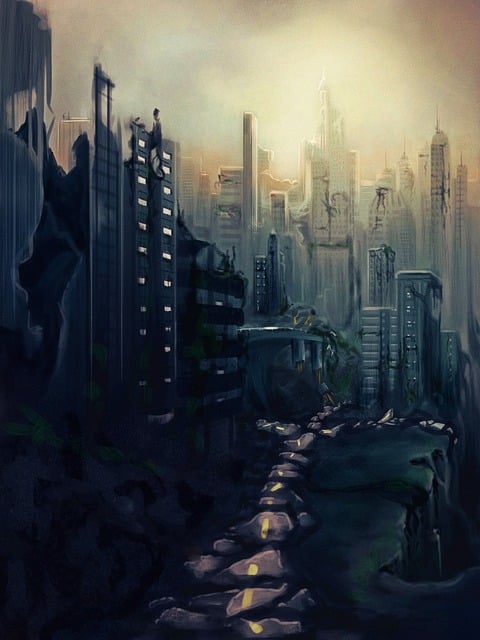
Post-apocalyptic fiction often delves into the psychological depths of human survival and the resilience of individuals facing a world transformed by cataclysmic events. These narratives explore the emotional landscapes that emerge from the ashes of civilization, providing readers with a profound understanding of the human condition. The genre is particularly adept at examining how individuals and societies cope with loss, trauma, and the need to rebuild after an apocalypse. Authors like Cormac McCarthy in “The Road” and Emily St. John Mandel in “Station Eleven” portray characters who navigate the desolation with a mix of desperation, hope, and a deep-seated human connection that becomes even more critical in the absence of societal norms. The psychological intricacies revealed through these stories offer insights into our own potential responses to such scenarios, highlighting the resilience and adaptability inherent within us all.
The emotional resonance found within post-apocalyptic literature serves as a mirror reflecting our innermost fears, desires, and the capacity for both good and evil that lies within each person. These narratives challenge readers to confront existential questions about life’s meaning after societal collapse. They often depict characters who undergo transformative journeys, revealing the strength of the human spirit in the face of adversity. The genre’s popularity underscores a fascination with understanding how individuals cope with extreme stress and how societies rebuild after an apocalypse. Through the prism of post-apocalyptic fiction, we gain a deeper appreciation for the resilience that defines human nature, even in the most dire circumstances.
The Best Post-Apocalyptic Series: Exploring Longform Narratives of Humanity's Struggle for Survival
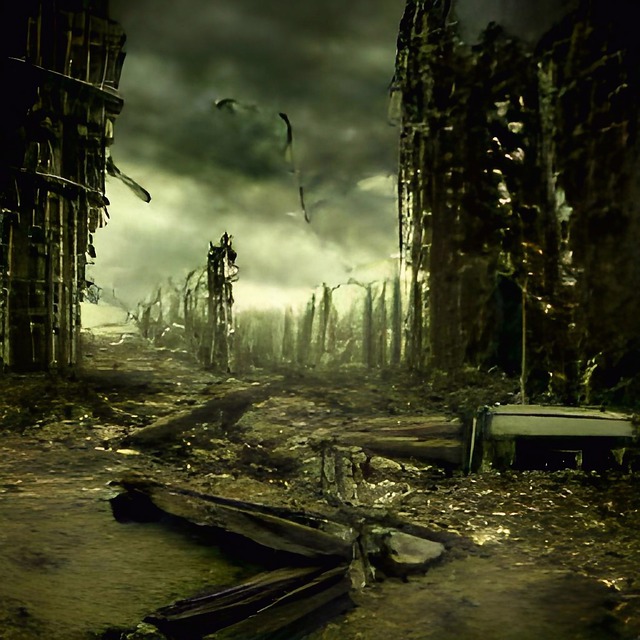
In the realm of post-apocalyptic literature, longform narratives provide an in-depth exploration of humanity’s resilience and adaptability in the face of global catastrophe. These series delve into the intricacies of survival, social dynamics, and moral quandaries that arise when society as we know it crumbles. The best post-apocalyptic series often intertwine complex characters with plausible scenarios, offering readers a window into the multifaceted implications of an apocalypse. Through their ongoing sagas, authors such as James Wesley, Rawls, with his John Doe series, and Cory Doctorow, with his “Walkaway” trilogy, chart the course of human societies rebuilding or disintegrating under different post-apocalyptic conditions. These narratives not only entertain but also provoke thought about the nature of civilization, governance, and human interaction in a world dramatically transformed by disaster.
The enduring appeal of post-apocalyptic series lies in their ability to mirror contemporary concerns while also speculating on potential futures. They often serve as a commentary on current societal issues, extrapolating from today’s realities to envision tomorrow’s challenges. Readers follow the journeys of protagonists who confront the harsh realities of life after an apocalypse, navigating through both the physical and psychological landscapes that such events bring about. These series, like “The Road” by Cormac McCarthy or “The Fifth Season” by N.K. Jemisin, offer profound insights into human nature and the shared experiences of those who must rebuild after societal collapse. Through their gripping narratives, they remind us of our vulnerabilities and potential resilience, making them indispensable contributions to the post-apocalyptic literary genre.
readers have explored the rich and varied worlds that post-apocalyptic literature offers, delving into the psychological resilience of characters, the societal shifts, and the survival challenges they face. The narratives examined not only serve as entertaining speculation but also provide insightful sociopolitical commentary. From the haunting landscapes of a world post-apocalypse to the emotional depths of human experience, these stories reflect our innate drive for perseverance and adaptation. Whether through standalone novels or expansive series, readers have witnessed humanity’s struggle for survival in its most stark and compelling forms. This exploration underscores why post-apocalyptic literature remains a powerful genre that continues to resonate with audiences across the globe.
